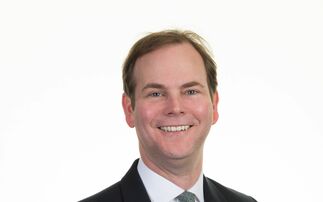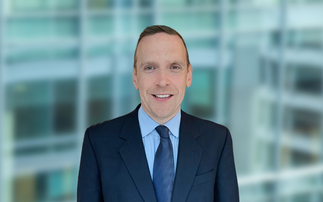Disruption is the background for the Investment Outlook 2021 of Triodos Investment Management. Right in the middle of a pandemic of which there are only a few examples in history, the major financial markets - rescued by central banks and fiscal policies - by and large continue as if nothing is happening. Yet there is a lot going on in our ecosystems, our societies, our economies, all with grave consequences. Economic activity is slowly recovering, but a sustainable recovery is not yet to be seen. We think it is time to face the challenges and to start making different investment choices. Both for the long and the short term.
2021: What kind of recovery?
Due to the COVID-19-related lockdown measures, 2020 will go into the record books as the year that saw the deepest global recession in peacetime. For 2021, we expect global growth to rebound, both in emerging and developed economies, even if it will not be a total recovery of the damage done by the pandemic.
Download our Investment Outlook 2021
Developed markets slow recovery
In developed markets the recovery will likely be slow amid recurring restrictive measures. For 2021, we expect global economic activity to rebound by 4.9% and developed economies to grow by an aggregated 3.7%. Pre-pandemic economic activity levels can only be reached once a vaccine has become widely available. Despite positive vaccine developments, we do not expect this to happen before the final quarter of 2021. In the meantime, further stimulus is expected.
Emerging markets uneven recovery
Our emerging and developing market outlook for 2021 is one of a cautious and uneven recovery, with risks tilted to the downside. After almost a year of global crises - both health and economic - and unprecedented stimulus, support will be nearing an end for most countries. There is one swing factor that could help some countries to offset the impact of the pandemic to some extent in the coming year: China's recovery. Countries are expected to be lifted by increasing trade flows and access to capital markets. However, low-income countries with large funding gaps, will rely on debt relief and concessional financing to be able to take part in the economic recovery.
Asset allocations
With debt levels at record highs, and an uncertain economic outlook, we remain cautious in our asset allocation, neutral on average on bonds and negative about US equities and slightly positive about Japanese and European equity. We continue to see opportunities in the sustainable investment landscape, especially in Europe and Japan. The European Green Deal, the EU's roadmap for making its economy sustainable, will likely gain momentum. The related development of a green taxonomy will enable investors to steer their investments towards more sustainable technologies and businesses, and the creation of an EU Green Bond Standard will deliver a uniform tool to assess green bonds.
Different choices
The social, political and economic environment is likely to remain highly uncertain in the coming years. The tailwinds of the last four decades, favouring higher returns, have changed into headwinds leading to lower expected long-term returns across the board.
The financial industry should therefore look at returns in a different way. A different, more forward-looking approach is needed to see what the long-term returns of investments might be. The challenges we face - degradation of ecosystems, the loss of biodiversity, the rising inequality and polarisation in and between societies - should be taken into account in every strategic asset allocation framework.
Download our Investment Outlook for 2021 and read more about the challenges you are facing as an investor and how you can mitigate the risks and get the best chances of positive long-term returns through investing in impact and transitions.











